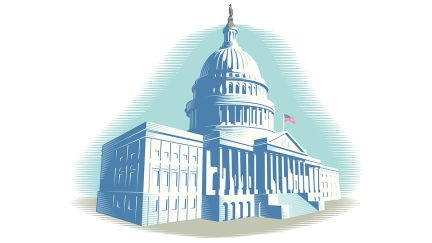Want the latest retirement plan adviser news and insights? Sign up for PLANADVISER newsletters.
Biden’s First Veto Keeps DOL’s ESG Rule in Place
The president followed through on his promise to veto a Congressional attempt to nix a DOL rule allowing ESG investing in retirement plans.

President Joe Biden on Monday used his first veto to maintain an environmental, social and governance rule for retirement investing plans that, according to many legal experts and industry participants, has no material bearing on the management of those investments.
In a series of events that may reveal more about the political battleground of ESG investing than it does the decision to use those investments in retirement plans, Biden made good on his promise to keep a November 2022 rule by the Department Labor. That rule states that retirement plan fiduciaries may consider ESG factors when making retirement plan investing decisions.
The DOL ruling lifted what had often been described as the “chilling” effect of a DOL decision under President Donald Trump that noted fiduciaries should only consider “pecuniary” factors when doing plan design. This February, a Republican-led Congressional Review Act resolution nullifying the DOL rule passed the House of Representatives along party lines of 216 to 204. The resolution, which was led by Representative Andy Barr, R-Kentucky, stated the DOL guidance would harm everyday retirement savers by allowing ESG-focused investments in their plans, sometimes as a default option they are not aware is being made.
The U.S. Senate quickly approved the resolution two days later by a vote of 50 to 46, with Senator Joe Manchin, D-West Virginia, and Senator Jon Tester, D-Montana, joining Senate Republicans in voting yes. Three Democrats were absent.
The resolution, while symbolic, was essentially dead on arrival on Biden’s desk. He had already said before the House passage that he would veto the bill in order to keep the DOL ruling intact.
For retirement plan fiduciaries—including advisers and plan sponsors—responsible for the investments put into defined contribution retirement plans, the debate itself has seemed overblown. As 401(k) retirement plan adviser Kevin Takinen of Sequoia Consulting Group told PLANADVISER soon after the act passed Congress, the debate over ESG factors has been swinging back and forth over the past six years, to the point where industry actors take a straightforward, conservative approach to including ESG-focused investments.
“Because of the constant fluctuations, [plan fiduciaries] have held steady,” he says. “If we are going to add in a fund that has an ESG mandate, let’s make sure it meets everything else that might be one of the factors in the plan’s investment policy statement. It’s got to meet everything else in the IPS, so that remains tried and true in all situations.”
Politicians on the left have, perhaps counterintuitively, argued that the rule should be kept because of the very fact that it does not mandate anything, but simply allows fiduciaries to provide ESG options if requested.
“This is a really important point I think folks are missing: The Biden rule is fundamentally neutral on how ESG factors are taken into consideration, so long as the investment fund is meeting its fiduciary obligations to its beneficiaries,” Senate President Pro Tem Patty Murray, D-Washington, said on the floor during a Senate debate. “The rule we are talking about is neutral on whether a fiduciary is considering these factors from a particular perspective.”
Many of her Republican counterparts disagree. To them, the rule signifies an investment focus that may be dangerous for investors as, they argue, it goes beyond solely looking at how well the investments will perform for savers.
“Retirement plans should be solely focused on delivering maximum returns, not advancing a political agenda,” said representative Barr, who is chair of the House Financial Services Subcommittee on Financial Institutions and Monetary Policy, in a statement ahead of the House vote. “If Congress doesn’t block the Department of Labor’s rule greenlighting ESG investing in retirement plans, retirees will suffer diminished returns on the investment of their hard-earned money. It’s time for Congress to act.”
Senator Murray said in an emailed statement after the veto that “the Biden rule is fundamentally neutral on how ESG factors are taken into consideration so long as the investment fund is meeting its fiduciary obligations to its beneficiaries. I’m not sure everyone gets that—because the fact of the matter is, some of the same people who are railing against this rule, and against ESG investing, have advocated for positions that essentially are ESG investing.”
For now, the rule remains. It would require a two-thirds vote in both the House and the Senate to override Biden’s veto.
You Might Also Like:

DOL Reconsidering Biden-Era ESG Considerations Rule

DOL Gets 60 More Days to Decide Next Steps in Fiduciary Rule Lawsuit




